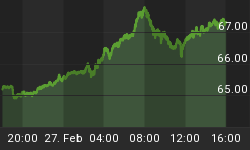Something strange is happening in the banking business.
In theory, a low interest rate environment is generally good for banks because it allows them to borrow at, say, zero and lend to auto or home buyers at considerably more, making a nice fat interest spread, which has traditionally been the key measure of a bank's profitability.
And that's pretty much how it's been going. U.S. bank earnings were up 7% y-o-y in the second quarter, to a record $43 billion. Bank lending rose across the board from industrial to auto to mortgage loans, and delinquencies fell for the 21st consecutive quarter.
So the government's care and feeding of the banks is a success, right? Well, no, apparently. From last week's Wall Street Journal:
Fed Stance Squeezes Bank Profits
No wonder bank-stock investors are feeling a chill. The Fed has left them out in the cold.
This was supposed to be the year when superlow interest rates stopped squeezing net-interest income at U.S. banks. As recently as June, consensus estimates were that this would decline by just 0.8% in 2015 at large-capitalization banks, according to Sanford Bernstein's John McDonald. Analysts thought next year would see a rebound with 6.6% growth.
That was predicated on the U.S. Federal Reserve raising short-term interest rates for the first time in nine years. Instead, the decision by the Fed Thursday to stand pat -- along with the fact that the overall tone emanating from the central bank was more dovish than expected -- is forcing investors to rethink banking prospects.
Namely, that it is now more likely that net-interest income and margins will remain flat, or possibly even decline further, in coming months. That will keep bank stocks under pressure as valuations had already been anticipating a more-favorable interest-rate environment.
Why is the outlook so grim if the Fed isn't tightening policy? The primary driver of falling net-interest income has been a squeeze on net-interest margins, the difference between what a bank pays for deposits and the yield on its loans. The unusually long period of ultralow rates has compressed margins by more than 27% since 2010.
As a result, bank profits can shrink even if firms grow lending and market share. At some point, you just can't make it up on volume.
And since it is the pace of rate increases, rather than the timing of the Fed's first move, that shifts the yield curve and drives net-interest margins, lower for longer means the net-interest margin pressure will continue.
So which is it? Are low interest rates great for banks or a problem?
The answer is that extremely low interest rates are good for normal banks (recall those record aggregate earnings). But because low rates lead to massive malinvestment and excessive leverage that turns markets into chaotic casinos, they're bad for the kinds of entities that the biggest banks have become, i.e., diversified hedge funds. If you're Goldman Sachs or JP Morgan Chase you can make money in most reasonably-stable markets by having one trading desk place a bet and another trading desk push the market in the profitable direction. Rinse and repeat and voila, consistent trading profits.
But when things get crazy, as they have in the past few weeks, manic/depressive global markets swamp trading desk manipulation and the big banks find themselves in the same boat as everyone else, tossed in random directions by random waves. Except that the banks are leveraged to the hilt, which makes the waves far bigger and more destructive.
The banks would therefore like to see higher interest rates and, presumably, lower volatility. In other words, a return to markets they can game. The Federal Reserve -- which after all is OWNED by the big banks -- gets this and would like to help. But the volatility that is victimizing its owners is making it scary for the Fed to act. The result: Poetic justice on a vast -- and soon to be much vaster -- scale.
















